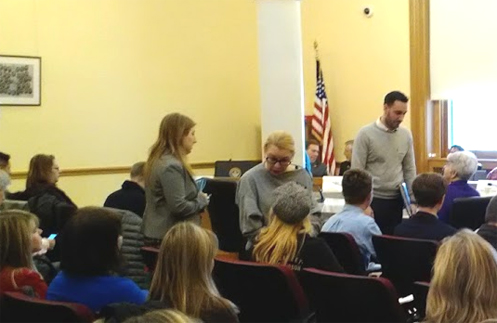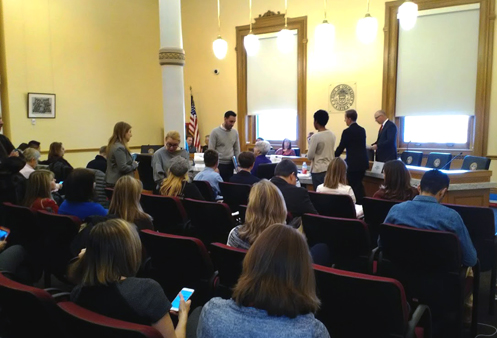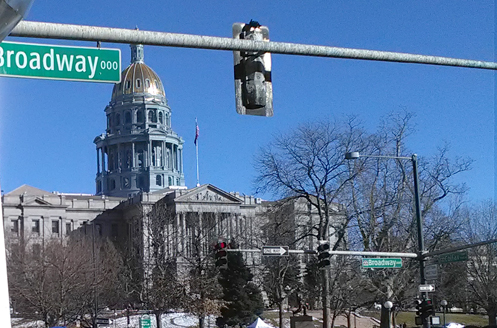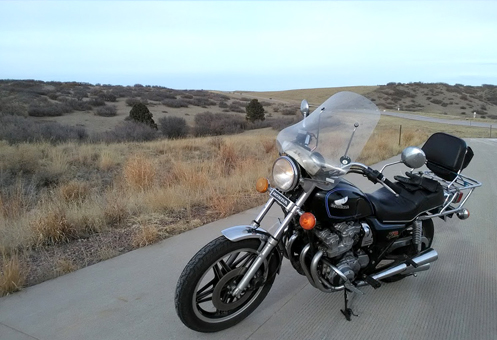Thoughts On The Distracted Driving Bill, SB-12
Thursday, January 31st, 2019In my last post regarding the Senate hearing on SB-12, outlawing non-hands-free use of cellphones while driving, I laid out in generalities the arguments made by the three people who spoke in opposition, plus the issues raised by some of the senators. I also discussed some of the responses from those who support the bill.
Now I want to offer my own thoughts on those arguments, in a more particular manner. I could have spoken at the hearing but I’m not good at extemporaneous rebuttal. I need time to consider and compose my responses. I’d make a terrible trial lawyer.
Sen. Kevin Priola questioned whether this bill would open people up to penalties if they pick up their phone, through which they are listening to music, to switch to a different song. Sen. Lois Court, who is promoting this bill, replied that the whole point is for people not to use their phones while driving. I agree; that’s the whole point. If you have your phone in your hand and are looking at it while changing the music that is no different whatsoever than looking at it to dial a number. You’re distracted. Your eyes are not on the road. That’s the whole problem.
Sen. Faith Winter asked why current laws are not enough. Texting is already illegal while driving in Colorado. Sen. Court replied that her bill is backed by law enforcement agencies because currently it is extremely hard to tell whether someone is texting or entering a phone number. Both are distractions so why outlaw one and not the other?
Sen. Kerry Donovan said the bill would disproportionately impact those too poor or too technologically inept to have smart phones, which have hands-off capability. I say that if the call is that important, pull over and stop and then make the call. If it’s not important enough to do that, then it’s just not that important at all and can wait until you get to your destination. Driving in important.
Speaking against the measure, Tristan Gorman, of the Colorado Criminal Defense Bar, argued that the impact would be greater on the poor and would open up the possibility of use in racial/ethnic profiling. I say that if you’re poor that should be a pretty good incentive to obey the law and not get fined, both on this issue and every other issue. There’s a saying, “Don’t do the crime if you can’t do the time.” I’d add, “or if you can’t pay the fine.”
As for profiling, others made the point that if a cop is intent of profiling, there are plenty of other “issues” they can already turn to. Meanwhile, the incidence of this type of abuse by police is found to be very low in Colorado.
Gorman also challenged the idea of heavy fines when there is no proof of harm. No, there is no harm in making a phone call. However, when making that call leads to injury or death, it is too late to say, OK, now it’s a crime. Again, the whole point of this and many other laws is to prevent tragedy. If a particular behavior is known to lead to tragedy in some instances, don’t behave in that manner. This is not rocket science.
Denise Maes of ACLU of Colorado argued that education was the better approach, such as sections in driver’s education programs, billboards urging people not to use their phones while driving, public service announcements, etc. I’m not the only one who thinks that relying solely on those methods is not effective. Yes, some people would say, “Oh gosh, this is illegal, I won’t do it,” but there are plenty of others who say “That’s bull, I can do this safely and they’re not going to tell me what to do.” For those who simply choose to obey the law, fine, they won’t be getting a fine. For the others, we need the stick because the carrot just isn’t ever going to work.
The one thing that the opponents kept coming back to was how difficult it would be for many people to bear the costs of the fines and, if they lost too many points on their licenses, the loss of their driving privilege. My reply is simple: Then don’t use your phone when you’re driving. And going beyond that, let’s show equal concern for these people’s victims. If someone is severely financially impacted by paying a $750 fine, that pales totally to the price paid by someone who dies or is permanently disabled due to that other person’s bad choice. If your bankruptcy prevents my death, I claim higher priority.
Wow, I’m just one hour into a three-hour hearing. I don’t see any need to beat this horse any further so I’ll wrap up here. This bill will be back for further consideration and I’ll continue following it. Stay tuned.
Biker Quote for Today
It was only a motorcycle but it felt like a mode of being. — Rachel Kushner








